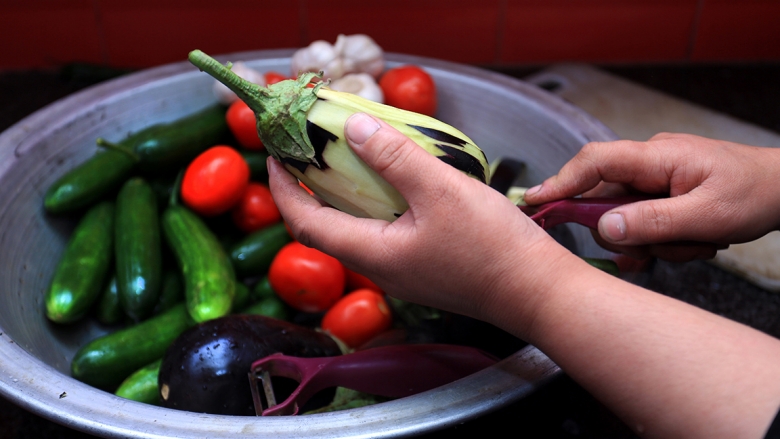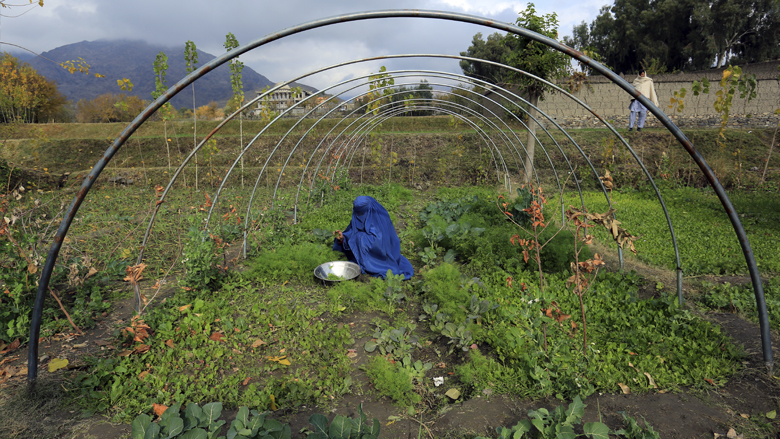Nangarhar Province – The village is wet with rain and the enchanting fragrance of orange trees fills the air. In a corner of the village, Zahra works carefully in her vegetable garden. The mother adjusts her gray scarf and selectively picks white radish.
. As an illiterate woman, she had always been a homemaker, and due to the social stigma of working outside of home among inhabitants of the village, she had never tried to start a business or work to support her family.
With no skills to earn an income, Zahra was supported by the National Horticulture and Livestock Project (NHLP) to start a kitchen garden. She was given monthly training on kitchen gardening, which has enabled her to run her small-scale garden effectively and changed her from an unskilled woman to an independent producer, earning to support her family.
In addition, she receives 15 different kinds of vegetable seeds, like spinach, radish, coriander, onion, leek, tomato, and lettuce, from NHLP. She cultivates vegetables throughout the seasons on her one jerib (0.2 hectares) of farmland. “Our household vegetable needs are met by my gardening,” Zahra says. “I sell the extra vegetables to the market and buy other family needs. In total, I earn 10,000 afghanis (about $140) to 20,000 afghanis per season from selling my vegetables to the market.”
Over a dozen other women also benefit from NHLP activities where Zahra lives. These women grow vegetables on the small pieces of land around their homes, which they had never thought could yield them an income. Now these small plots of land provide nutritious food and an income.
NHLP operates under the Ministry of Agriculture, Irrigation and Livestock (MAIL), supported by a $190 million grant from the Afghanistan Reconstruction Trust Fund (ARTF). It works toward the overarching goal of increasing productivity and production of horticultural products.
The activities have three components: horticultural production, animal production and health, and implementation management and technical assistance.



